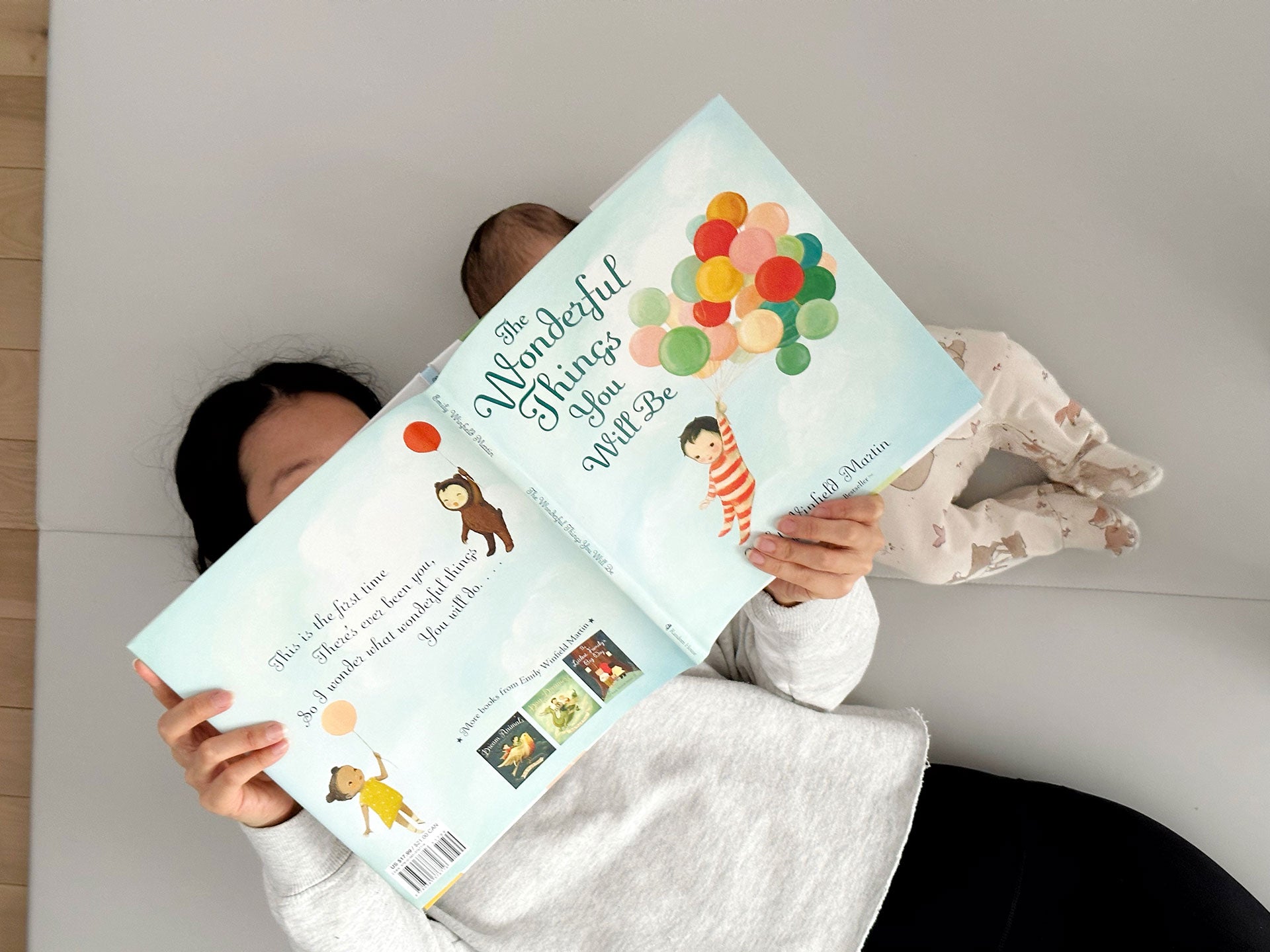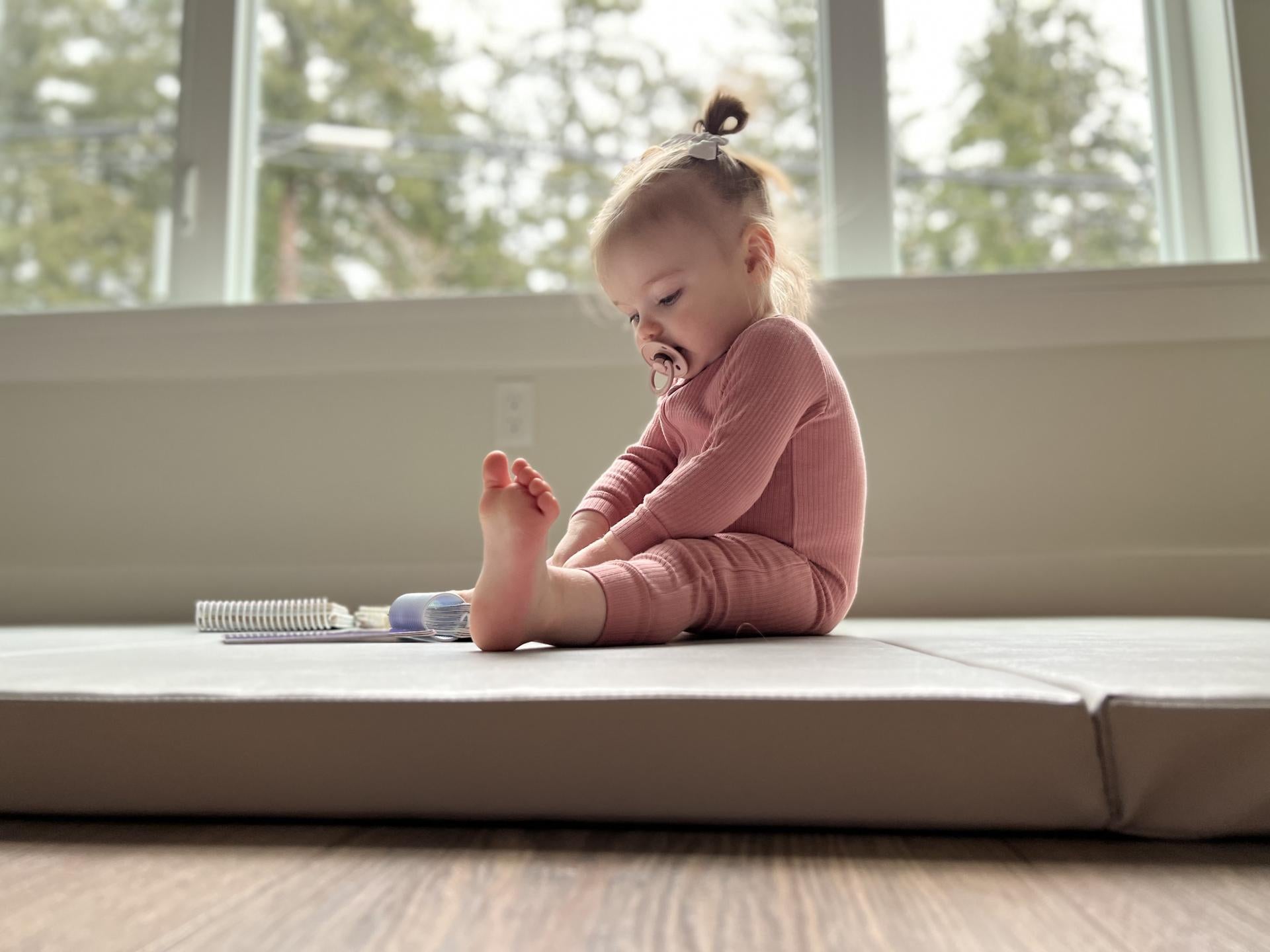
From Snuggles to Steps: Understanding the Difference Between Newborn, Infant & Toddler Stages
Children don’t just grow, they transform. One moment you’re marveling at their first sleepy smile, and before you know it, they’re chasing butterflies in the backyard. But while it may feel like a blur, each stage of early childhood brings its own rhythm, milestones, and needs.
Knowing the difference between newborn, infant, and toddler stages is empowering.
Whether you're preparing to welcome a baby or navigating new toddler energy, understanding the stages can help you support your child with confidence, intention, and the right tools along the way.
Age Ranges and Definitions: What’s in a Name?
Let’s start by clarifying the often-confused terminology.
- Newborn: Birth to around 2 months
- Infant: 2 months to 12 months
- Toddler: 1 year to 3 years
These aren’t just arbitrary age brackets, they also mark changes in brain development, motor skills, and how your little one interacts with the world.
If you’ve ever wondered when a baby is no longer a newborn, it typically happens around the 8-week mark when they begin to adjust to life outside the womb and show stronger awareness of their surroundings.
Similarly, what age is a toddler? Once your child blows out that first birthday candle, you’ve officially entered toddler territory, curiosity, chaos, and all.
Understanding these age stages isn’t just helpful for tracking milestones, it also helps you choose the right tools for growth, like a baby playmat and playpen combo that adapts as your little one moves from tummy time to toddling. The right gear can support each stage safely, giving them room to explore while giving you peace of mind.
Developmental Milestones: Baby Steps that Matter
Each stage comes with its own set of baby age milestones. Some are universal, like rolling over or walking, while others unfold on each child’s timeline. Here’s a brief breakdown of what to expect:
Newborn (0–2 months)
- Reflexes like grasping, rooting, and startle response
- Sleeps most of the day, waking for short feedings
- Begins to recognize caregiver’s voice and scent
Infant (2–12 months)
- Gains head control, rolls over, and eventually sits up
- Reaches, grasps, and plays with toys
- May crawl, stand with support, and say first words
Toddler (1–3 years)
- Walks independently, climbs, and begins running
- Develops basic language (and favorite words like “no!”)
- Starts imaginative play and early problem-solving
At Wunderkids, we design developmental tools that match these baby development stages, from cushioned tummy time mats to soft climbing blocks that support toddler development stages.
Developmental Screenings and Support: Trust Your Gut, Use the Tools
Every child moves at their own pace, but that doesn’t mean you’re navigating blind. Regular developmental screenings, especially during infancy and toddlerhood, can identify any delays early and give you a clear picture of how your child is progressing.
If something doesn’t feel right, whether it's a delay in crawling, walking, or speech, talk to your pediatrician. Early intervention is powerful, and the right support can make all the difference.
Our Canadian-founded brand champions this idea of supporting every stage of early childhood, not by rushing milestones, but by building confidence in parents and creating safe, adaptable spaces for kids to explore.
For a more detailed look at what to expect at each age, the CDC’s milestone checklists are a trusted, research-backed resource for parents and caregivers.

Sleep and Eating Patterns: Because Routines Aren’t One-Size-Fits-All
Understanding your child’s sleep and feeding needs can make a big difference in your day-to-day, and your sanity.
Newborns
Newborns sleep 16-18 hours a day, but not in long stretches. They’ll wake frequently for feeds, whether breastmilk or formula, and need to be held close for comfort and bonding.
Infants
By three to six months, many babies consolidate sleep into longer nighttime stretches and begin to nap more predictably. Solid foods are introduced around 6 months, depending on readiness cues like sitting up or showing interest in your spoon.
Toddlers
Toddlers usually sleep through the night with one daily nap. Meals become more structured, and picky eating may emerge as their independence grows. Don’t worry, exploration is part of the process.
Wunderkids products are intentionally designed to help with transitions, from safe playpens for infants and toddlers that double as cozy nap zones to modular foam sets that encourage post-meal movement and digestion.
Explore HealthyChildren.org for pediatrician-approved tips on sleep, nutrition, and daily routines during your child’s first years.
Speech and Language Development: From Cooing to Conversations
Language begins before a baby ever says a word. Understanding infant vs toddler age expectations for speech can ease worry and encourage bonding.
- Newborns respond to tone and rhythm. They learn language by hearing you talk and sing.
- Infants begin babbling, imitating sounds, and may say simple words like “mama” or “dada” by 9-12 months.
- Toddlers take off linguistically, stringing together words, asking questions, and mimicking everything.
You don’t need flashcards to support this stage. Just talk to your child often, narrate your day, and give them space to respond, even if it’s just a smile or a babble.
For a comprehensive checklist, refer to the NIDCD’s Speech and Language Developmental Milestones, which details expected vocal and language abilities from birth through toddlerhood.
Transition Between Stages: The Signs You’re Entering a New Phase
So how do you know when your newborn is now an infant, or when your baby has become a toddler?
Look for changes in movement, interaction, and awareness.
- When your baby starts grasping toys with purpose and reacting to their name, you’re likely leaving the newborn stage.
- When your little one begins walking, asserting preferences, and using language creatively, you’ve entered full toddler development stages.
Transitions can feel bittersweet, but they’re also magical. Every new skill is a signal that your child is learning to thrive in their world, and you’re doing a great job helping them get there.
Tools for Every Stage: Support that Grows with Your Child
At Wunderkids, we believe in products that grow with your child. Our line of eco-conscious play mats, climbing blocks, and soft modular furniture is built for the developmental stages of babies, infants, and toddlers.
- For Newborns: Soft, non-toxic play mats perfect for tummy time and sensory development
- For Infants: Versatile toddler play space to support crawling, pulling up, and exploring
- For Toddlers: Climbing gyms, tunnels, and soft archways that inspire movement, imagination, and adventure
Every piece is crafted with care, made for real-life parenting, and designed to last, because we believe in supporting families at every step.
Wunderkids: Rooted in Real Parenting, Built for What’s Next
Parenthood doesn’t come with a manual, but with the right knowledge and tools, you can move through each stage with more clarity, joy, and confidence.
Wunderkids is a community of parents, caregivers, and creators who understand what it takes to raise children with intention. We're proud to be Canadian-founded, community-focused, and here to support you through every wiggle, wobble, and wonder.
From the sleepy snuggles of the newborn phase to the joyful chaos of toddlerhood, each stage is fleeting, but deeply formative. And we’re here to help you embrace it all.



